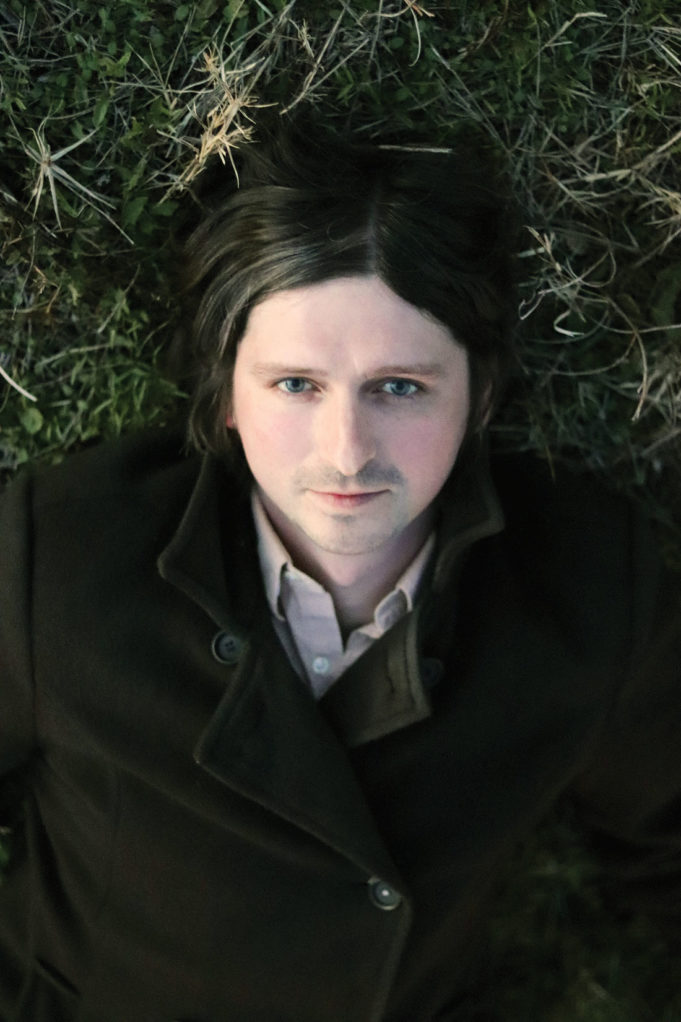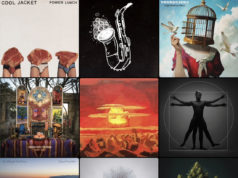This probably goes without saying, but I think the context of where, when, and how you consume music is crucial to how you appreciate it, and perhaps a balmy, shorts-weather afternoon in the third week of November isn’t exactly right for an album like Eric Osbourne’s debut. But in the absence of the means to hole up in a rural cabin, isolated behind silent acres of bare branches and the visual hush of a landscape smothered in snow, a warm day during the last stretch of autumn is just something you make do with for such beautifully plaintive music. And anyway, Osbourne’s songs, drawn in melancholy shades by his lonely baritone and minor-key finger-picking, are kind of transportive that way. They take your mind to places like the low-lit oppression of a low-rent apartment, made darker by the dissolution of a relationship or the unreality of a totally empty street at dusk. In his songs, Osbourne has wrought a superbly emotive debut, all the more interesting given that he’s been playing music for almost 20 years – never mind that he’s been working on this album since 2013.
If I were reading this piece, this is where I might wonder who the hell Eric Osbourne is. Though he grew up here, he started bouncing around the Pacific Northwest and the upper part of the Midwest about 20 years ago. He lived in Vancouver, Bellingham, and Seattle before heading east to Madison, Wisconsin. After that, he made it to Chicago and stayed there for a decade.
“I’ve been writing songs and sharing them with friends for over 20 years, though I didn’t play live much until I landed in Chicago and formed a band called Cellmates with [my friends] Mandy Ellis, Sabrina Rush, and Danah Olivetree around 2006,” Osbourne said. “We self-released an EP, Goodbye Songs, but that was my only release until this new record. After Cellmates disbanded, I continued to play solo and with Sabrina and Danah around Chicago until I moved back to Texas.”
During his time in Chicago, Osbourne became friends with a then-up-and-coming, now-pretty-famous indie songwriter, Angel Olsen, who sings backing vocals on the album. “We had a lot of mutual friends in Chicago and became friends through these folks,” Osborne said. “We appreciated many of the same musicians and often crossed paths at shows or parties. We lived very close to each other, too, so it wasn’t unusual to hang out and eat lentil soup or something on winter nights. I think we had similar ideas and feelings about songwriting in those days and that, in some ways, we learned from each other.”
Osbourne started his album in 2013, recording most of it in the second-story bedroom of an apartment on Chicago’s Logan Square. Olivetree played cello, Rush played violin, and Olsen sang over Osbourne’s guitar and vocals. Four years later, Osbourne finished the album after moving to Fort Worth. The DIY atmospherics – the tape hiss, the sound of someone clanking dishes in the kitchen – give the music an elegantly mournful ambience.
He will be self-releasing it at a time yet to be determined. “Truth be told, I’m not sure,” he said. “I’m looking at doing a release show in Fort Worth mid-January with a tour of some kind to follow. I haven’t toured much before, and the people who played on this record are scattered.”
Osbourne’s influences are all over the place, ranging from Nina Simone, Vashti Bunyan, and Bjork to Townes Van Zandt, Leonard Cohen, and The Velvet Underground, but he said his songwriting tends to come from ineffable experiences, “like when first experiencing the vast beauty of landscapes, mountains, and cities,” he said. “It’s something I think about when writing.”
The stoic majesty of a mountain and the solitary exploration of a new cityscape are reflections in Osbourne’s songs, additional appropriate frames for contextualizing his sound, but so is the idea of emotional processing. “Making music can be a way of letting go of something, like a memory, without having to lose it,” he said. “It can be therapeutic.”
So whether you’re wandering the frigid emptiness of a windswept city after dark or sitting on a balcony in some unseasonably pleasant sunshine, the imagery and impact of Eric Osbourne’s music is beneficial for your soul.












